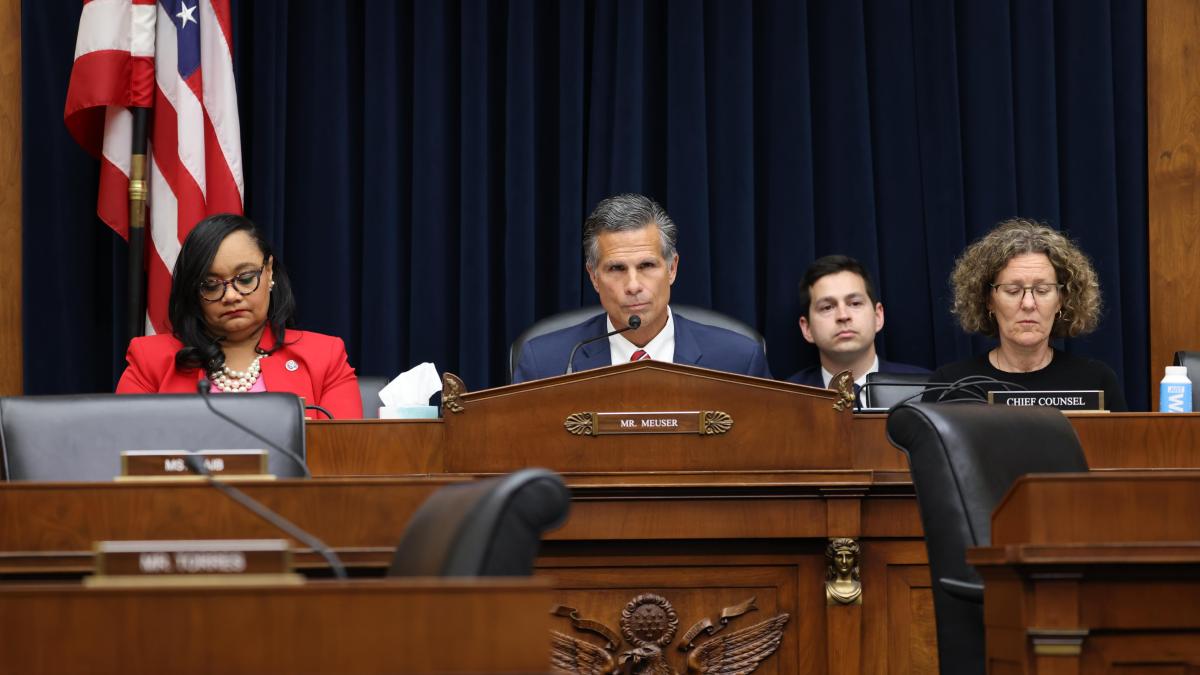Reps. Meuser and Luetkemeyer Raise Important Questions Regarding Deposit Insurance Reform

Washington, D.C. – Recently, Congressmen Dan Meuser (PA-09) and Blaine Luetkemeyer (MO-03) wrote a fact-finding letter to Martin Gruenberg, Chairman of the Federal Deposit Insurance Corporation (FDIC), posing critical inquiries, a report released by the FDIC on May 1, 2023.
The Options Paper emerged in response to notable occurrences earlier this year, marked by uninsured depositors withdrawing funds from Silicon Valley Bank and Signature Bankleading to some of the largest bank failures recorded by the FDIC and subsequent contagion that took down First Republic Bank. However, the options proposed left critical questions unanswered.
Within the Options Paper, the FDIC presented a spectrum of potential reforms to address the mounting risk stemming from uninsured deposit expansion. Among these options are raising the deposit insurance limits, extending coverage to all deposits without constraint, offering unlimited coverage for specific deposit types, implementing voluntary excess deposit insurance, and revising deposit insurance policies to mandate collateralization or impose withdrawal timing constraints on large uninsured deposits.
The letter requests more detailed information on the benefits and costs of blanket insurance coverage, expended coverage for business payment accounts, and the Transaction Account Guarantee (TAG) program, among other topics, in an effort to provide Congress and depositors with as much information about these proposed changes as possible.
Meuser said, "In an era where our financial landscape is evolving rapidly, we must address the crucial questions surrounding deposit insurance reform. Recently our banking system was tested but remained resilient. It is imperative that we explore the potential avenues for safeguarding both the interests of depositors and the stability of our financial institutions moving forward. However, many of the Options Paper reforms proposed by the FDIC don’t provide enough clarity on the true cost of implementing such changes. Congress should fully understand the potential risks and costs associated with the proposed reforms."
A copy of the letter can be found here.
Full Background:
The Options Paper emerged in response to notable occurrences earlier this year, marked by uninsured depositors withdrawing funds from Silicon Valley Bank and Signature Bank, leading to some of the largest bank failures recorded by the FDIC and subsequent contagion that took down First Republic Bank. These distressing events unveiled shortcomings in bank management and supervision, sparking the need for a comprehensive examination of deposit insurance practices.
The report underscores the escalating reliance of the U.S. banking system on uninsured deposits, reaching a peak of 46.6 percent in 2021 - a level unseen since 1949. Over the past thirteen years, uninsured domestic deposits at FDIC-insured institutions surged at an annualized growth rate of 9.8 percent, surging from $2.3 trillion to an astonishing $7.8 trillion by 2022. The heft of uninsured deposits is concentrated in a limited number of institutions, particularly among the top 10 percent and 1 percent of banks based on asset size. It's noteworthy that even with this growth, over 99 percent of deposit accounts remain under the $250,000 deposit insurance limit.
Within the Options Paper, the FDIC has presented a spectrum of potential reforms to address the mounting risk stemming from uninsured deposit expansion. Among these options are raising the deposit insurance limits, extending coverage to all deposits without constraint, offering unlimited coverage for specific deposit types, implementing voluntary excess deposit insurance, and revising deposit insurance policies to mandate collateralization or impose withdrawal timing constraints on large uninsured deposits.
Recognizing the potential ramifications of these changes on the banking and financial landscape, the Congressional representatives have sought clarity by posing targeted questions to Chairman Gruenberg. These questions probe the potential impact on the Deposit Insurance Fund (DIF), the influence on average assessment rates, strategies for business payment account coverage, exclusions for community banks, and measures to manage potential asset market disruptions.
The representatives are keen to ensure a comprehensive understanding of the consequences, risks, and costs associated with these proposed reforms. The inquiry serves as an integral step toward informed decision-making that preserves the stability and security of the nation's financial sector.
###
